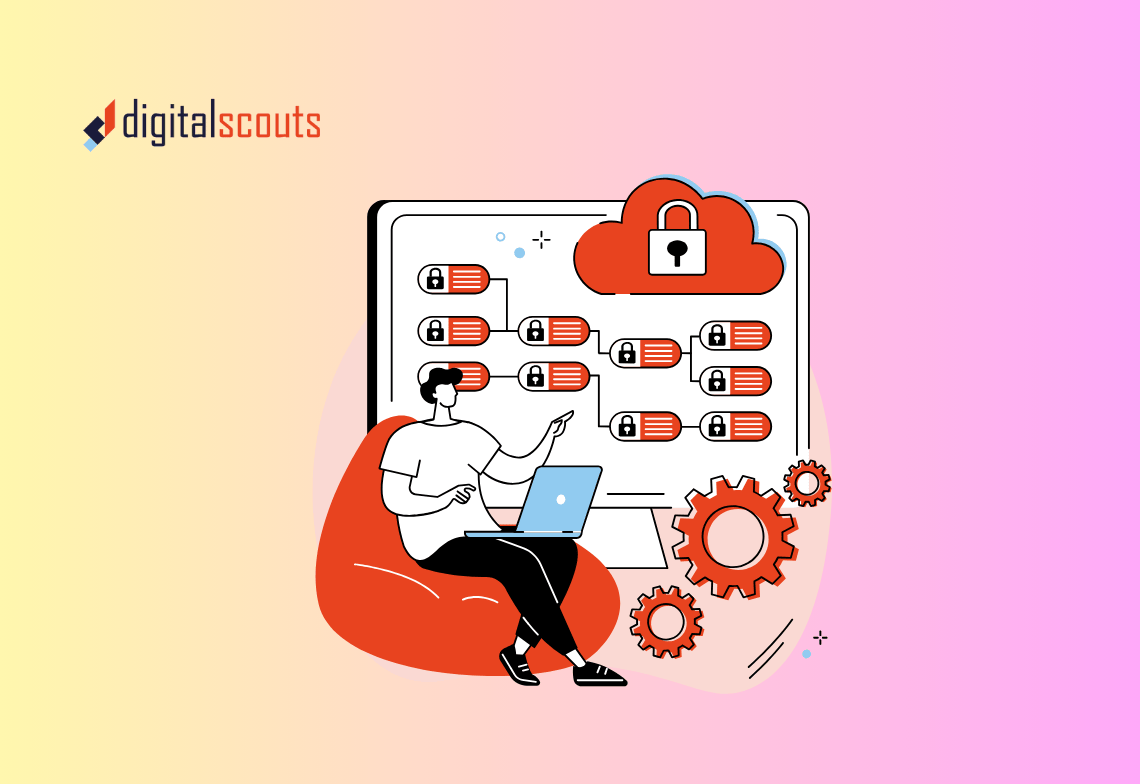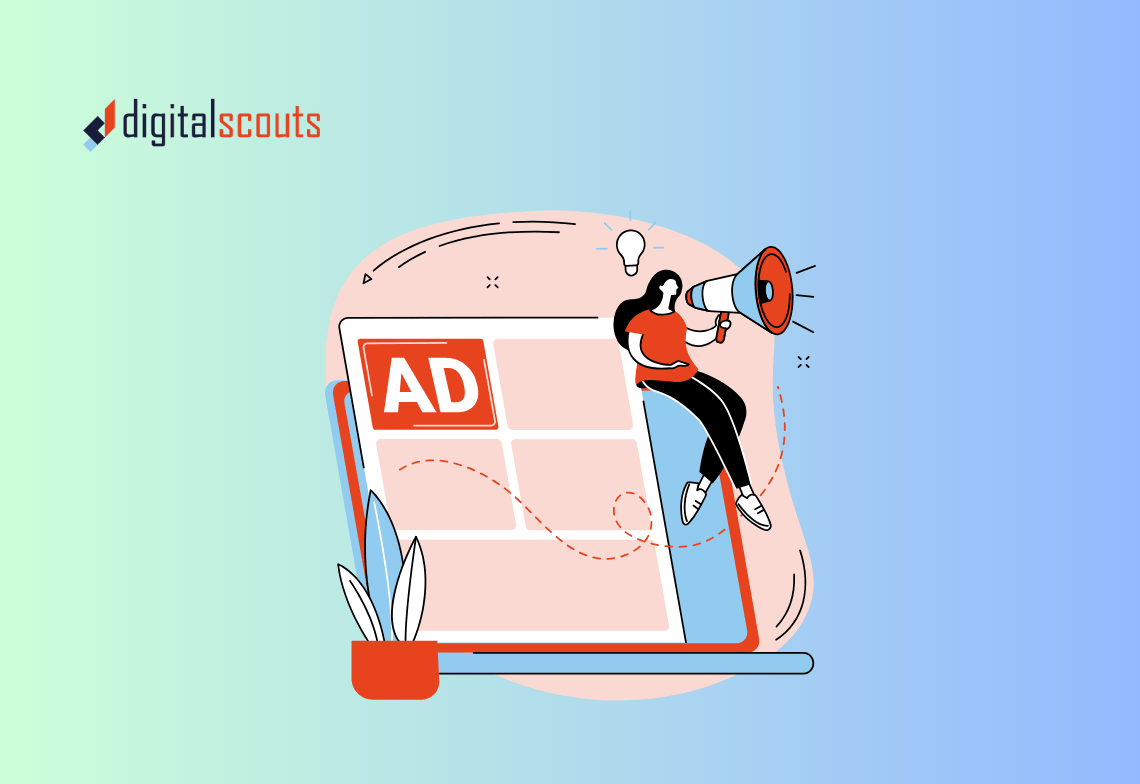Artificial Intelligence has evolved from an emerging trend to an essential driver of B2B growth. In 2025, it powers how marketing teams plan, create, and optimise every part of the customer journey.
AI now supports content creation, campaign orchestration, lead scoring, and predictive analytics — turning data into decisions and insights into revenue.
The real opportunity for B2B leaders lies not in the tools themselves, but in using AI strategically to scale what already works. This guide explains how AI agents, generative tools, and predictive analytics are changing marketing operations and how to use them to build a smarter, performance-driven engine.
The Rise of AI Agents in B2B Marketing
AI agents are autonomous systems that can perform multi-step tasks with little human intervention. Unlike traditional automation, which follows preset rules, AI agents can learn from data, adapt to changing inputs, and act on context.
1. Intelligent lead qualification
AI agents such as Regie.ai and Humata can read CRM data, score leads by fit and intent, send personalised follow-ups, and even schedule meetings automatically. They work seamlessly with HubSpot workflows to shorten response times and improve conversion.
2. Campaign orchestration
Platforms like Bardeen, Make, and Zapier AI enable marketers to automate campaign management across channels. These agents can pause underperforming ads, adjust budgets, or trigger new sequences based on live results — all in real time.
3. Account and market intelligence
Tools such as AgentGPT and AutoGPT can research ICP accounts, analyse intent data, and summarise findings into concise reports. Teams save hours each week while gaining richer context on their target market.
AI agents are becoming digital team members. When combined with human oversight, they deliver faster execution and more consistent customer experiences.
Generative AI for Content and Creative Strategy
Generative AI has matured from an idea generator into a full content production system. The focus has shifted from volume to relevance, tone, and performance.
1. Data-driven content ideation
Tools like HubSpot’s Content Assistant, MarketMuse, and Writer identify trending keywords and gaps in competitor coverage. They help teams build content strategies grounded in search intent and business goals.
2. Long-form content generation
Large language models such as Jasper, Claude, and ChatGPT produce structured drafts for blogs, whitepapers, and guides. Human editors refine these drafts with insights, data, and brand personality to ensure credibility and authority.
3. Multi-channel repurposing
Once a piece is complete, AI tools like Copy.ai or Anyword create tailored versions for social media, ads, and email. This keeps messaging consistent and accelerates campaign rollout.
4. Predictive content performance
Platforms like Surfer SEO and Clearscope analyse search intent, readability, and competitive benchmarks to predict how content will perform before it goes live. Teams can focus resources on the assets most likely to rank and convert.
Generative AI is now less about shortcuts and more about building structured, measurable, and repeatable content systems.
Predictive Analytics and Smarter Segmentation
AI-driven analytics enable marketing teams to move from reactive reporting to proactive strategy. Predictive models identify opportunities, forecast outcomes, and personalise engagement.
1. Predictive lead scoring
Solutions such as 6sense, MadKudu, and HubSpot’s AI Scoring evaluate behavioural and firmographic data to highlight the prospects most likely to convert. This ensures sales teams focus on high-intent accounts.
2. Propensity and churn modelling
AI platforms like Pecan.ai and Custify predict upsell potential and churn risk using real-time usage and engagement data. They alert teams to act before opportunities are lost.
3. Dynamic ICP refinement
Tools such as People.ai and Clearbit analyse traits of your best customers to refine your Ideal Customer Profile continuously. Marketing and sales can target look-alike accounts with greater accuracy.
Predictive analytics turns scattered data into foresight, helping companies plan with confidence and allocate spend where it counts.
Optimising B2B Advertising with AI
AI is transforming how B2B teams plan, execute, and optimise paid campaigns.
1. Programmatic optimisation
Platforms like Metadata.io, AdEspresso, and Google Performance Max use machine learning to test audience combinations and creative variations. They automatically shift spend toward the highest-performing placements.
2. Creative testing at scale
AI tools such as VidMob and Marpipe analyse how design, colour, and copy influence engagement. This feedback helps creative teams produce data-backed ads that resonate with their audience.
3. Smarter budget allocation
AI engines monitor campaign performance across every channel, recommending how to rebalance budgets for maximum ROI. Over time, the system learns which mix of channels drives the strongest pipeline results.
AI advertising tools replace guesswork with continuous optimisation — delivering faster insights and more predictable outcomes.
AI in Action: Real B2B Use Cases
To see the power of AI beyond theory, look at how different sectors are already integrating it into marketing and operations.
-
SaaS and technology companies use predictive scoring to forecast renewals, align customer success with marketing, and prioritise enterprise accounts showing strong expansion signals.
-
Professional services firms employ generative AI to create personalised proposals and case studies that align with each prospect’s industry and goals.
-
Manufacturing and logistics providers leverage AI agents for lead routing, inventory communication, and automated follow-ups after trade shows.
AI’s transformative impact extends beyond marketing. For instance, AI in healthcare is revolutionising patient care, diagnostics, and operational efficiency. A recent GoodFirms report on AI in Healthcare explores how intelligent systems are improving patient outcomes and personalising treatment pathways — a powerful example of how AI is enhancing decision-making and scalability across industries.
Whether you serve patients or prospects, AI thrives when combined with data quality, process integration, and human judgment.
How to Get Started with AI in B2B Marketing
Implementing AI effectively requires clear goals, clean data, and consistent measurement.
1. Define success. Decide whether your primary goal is content velocity, lead quality, or improved forecasting. Clear objectives ensure the right tools and metrics.
2. Audit your data. High-quality, structured data is essential for any AI system. Standardise CRM fields, remove duplicates, and connect your analytics sources.
3. Choose integrated platforms. HubSpot, Salesforce, and Segment make it easier to connect AI tools across marketing, sales, and operations.
4. Train your team. AI empowers marketers who understand how to prompt, analyse, and evaluate results. Build internal literacy around data and ethical AI practices.
5. Test, measure, and iterate. Start with one use case, measure the impact, then scale. Small wins build momentum for larger transformation.
AI implementation is not a one-time project but an ongoing evolution that grows alongside your business.
The Role of HubSpot and RevOps in AI Adoption
HubSpot has become a central platform for accessible, practical AI. Predictive lead scoring, content assistants, and chat-based insights bring automation and intelligence into daily workflows.
When combined with a unified RevOps model, AI ensures data flows smoothly between marketing, sales, and service. Shared metrics and automation improve collaboration and forecasting accuracy.
This alignment turns AI from a toolset into a connected system that drives predictable revenue.
AI is the Competitive Edge for B2B Marketing in 2025
AI is no longer experimental. It is the foundation of scalable, intelligent marketing systems. From generative content and predictive analytics to adaptive campaigns and automation, AI enables teams to work faster, think smarter, and grow with confidence.
At Digitalscouts, we help B2B organisations operationalise AI through HubSpot and RevOps — integrating strategy, automation, and analytics to turn ideas into measurable growth.
Ready to see what AI can do for your business?
Contact Digitalscouts to start building your AI roadmap.
Frequently Asked Questions
About Author
Ashish is a B2B growth strategist who helps scaleups align marketing and sales through Account-Based Marketing (ABM), RevOps, and automation. At DigitalScouts, he builds scalable content engines, streamlines lead flows with HubSpot, and runs targeted GTM programs to drive predictable pipeline. He regularly shares insights on using AI and automation to power ABM and accelerate complex buyer journeys.

.png?width=960&height=640&name=AI%20in%20B2B%20Marketing%20(1).png)

.png?width=94&height=94&name=HubSpot%20Breeze%20Agents%20(1).png)
.png?width=94&height=94&name=HubSpot%20CRM%20for%20Small%20Businesses%20(1).png)



